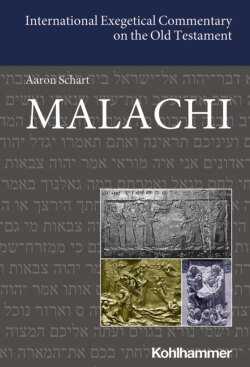Читать книгу Malachi - Aaron Schart - Страница 26
На сайте Литреса книга снята с продажи.
Diachronic Analysis
ОглавлениеSuperscriptions are seldom among the oldest elements of a text because their necessity appears only in the course of its being written down. In the case of Mal 1:1 it is striking how little the two generic terms applied suit the unique form of the writing. The Malachi document is characterized by disputation speeches, and no such thing can be found in Zechariah 9–14. In spite of that, Zechariah 9–11; 12–14; and the Malachi document bear the same generic designation, “weighty speech.” There is also the question whether the two parts of the superscription belong together literarily or whether they were introduced at separate stages. Since they cannot be combined in a way that makes sense, they may well have been added by different redactors. Because the generic term משׂא does not fit a collection of disputation speeches it would have been chosen as a superscription in order to connect the Malachi document with Zech 9:1 and 12:1.10 As for the disputed question whether the Malachi document was added to the Zechariah writing when the latter still ended with Zechariah 8 or after chapters 9–14 had already appended to the collection, the generic usage in Mal 1:1 speaks in favor of the latter hypothesis.
Likewise the second generic concept of דבר־יהוה, “word of Yhwh” refers back to the superscriptions of preceding parts of the Book of the Twelve (Hos 1:1; Joel 1:1; Mic 1:1; Zeph 1:1), which suggests that it, too, was chosen in the context of incorporating the Malachi document into the Book of the Twelve Prophets. Certainly the concept of “the word of Yhwh” fits well with the frequent ’āmar Yhwh ṣǝbā’ôt formula. Though certainly it may also have been inserted secondarily, it still presumes an independent literary Malachi composition.
Both parts of the superscription make it clear that the intent was to direct the reader’s attention back from descriptions of the eschatological final events to contemporary observance of the cult and keeping the Torah in daily life: to whatever degree the lively and impressive images of hope for the decisive turning of history on the day of Yhwh may resied in the minds of the audience, in the end everything still depends on preserving the faith in the present.
